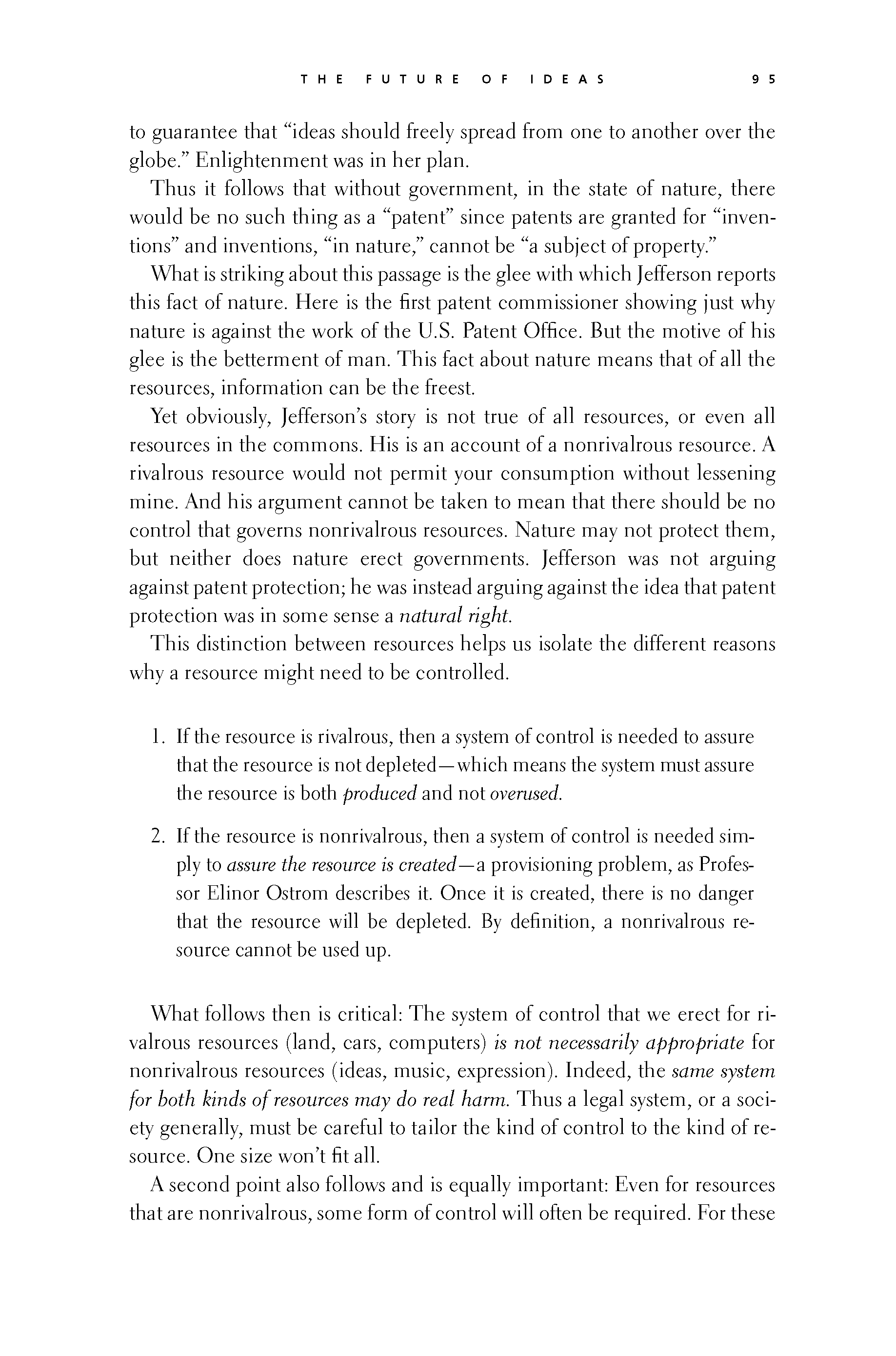 p094 _
-chap- _
toc-1 _
p095w _
toc-2 _
+chap+ _
p096
p094 _
-chap- _
toc-1 _
p095w _
toc-2 _
+chap+ _
p096
to guarantee that "ideas should freely spread from one to another over the
globe." Enlightenment was in her plan.
Thus it follows that without government, in the state of nature, there
would be no such thing as a "patent" since patents are granted for "inven-
tions" and inventions, "in nature," cannot be "a subject of property."
What is striking about this passage is the glee with which Jefferson reports
this fact of nature. Here is the first patent commissioner showing just why
nature is against the work of the U.S. Patent Office. But the motive of his
glee is the betterment of man. This fact about nature means that of all the
resources, information can be the freest.
Yet obviously, Jefferson's story is not true of all resources, or even all
resources in the commons. His is an account of a nonrivalrous resource. A
rivalrous resource would not permit your consumption without lessening
mine. And his argument cannot be taken to mean that there should be no
control that governs nonrivalrous resources. Nature may not protect them,
but neither does nature erect governments. Jefferson was not arguing
against patent protection; he was instead arguing against the idea that patent
protection was in some sense a _natural_right._
This distinction between resources helps us isolate the different reasons
why a resource might need to be controlled.
____ 1. If the resource is rivalrous, then a system of control is needed to assure
____ that the resource is not depleted -- which means the system must assure
____ the resource is both _produced_ and not _overused._
____ 2. If the resource is nonrivalrous, then a system of control is needed sim-
____ ply to _assure_the_resource_is_created_ -- a provisioning problem, as Profes-
____ sor Elinor Ostrom describes it. Once it is created, there is no danger
____ that the resource will be depleted. By definition, a nonrivalrous re-
____ source cannot be used up.
What follows then is critical: The system of control that we erect for ri-
valrous resources (land, cars, computers) _is_not_necessarily_appropriate_ for
nonrivalrous resources (ideas, music, expression). Indeed, the _same_system_
_for_both_kinds_of_resources_may_do_real_harm._ Thus a legal system, or a soci-
ety generally, must be careful to tailor the kind of control to the kind of re-
source. One size won't fit all.
A second point also follows and is equally important: Even for resources
that are nonrivalrous, some form of control will often be required. For these
[[95]]
p094 _
-chap- _
toc-1 _
p095w _
toc-2 _
+chap+ _
p096